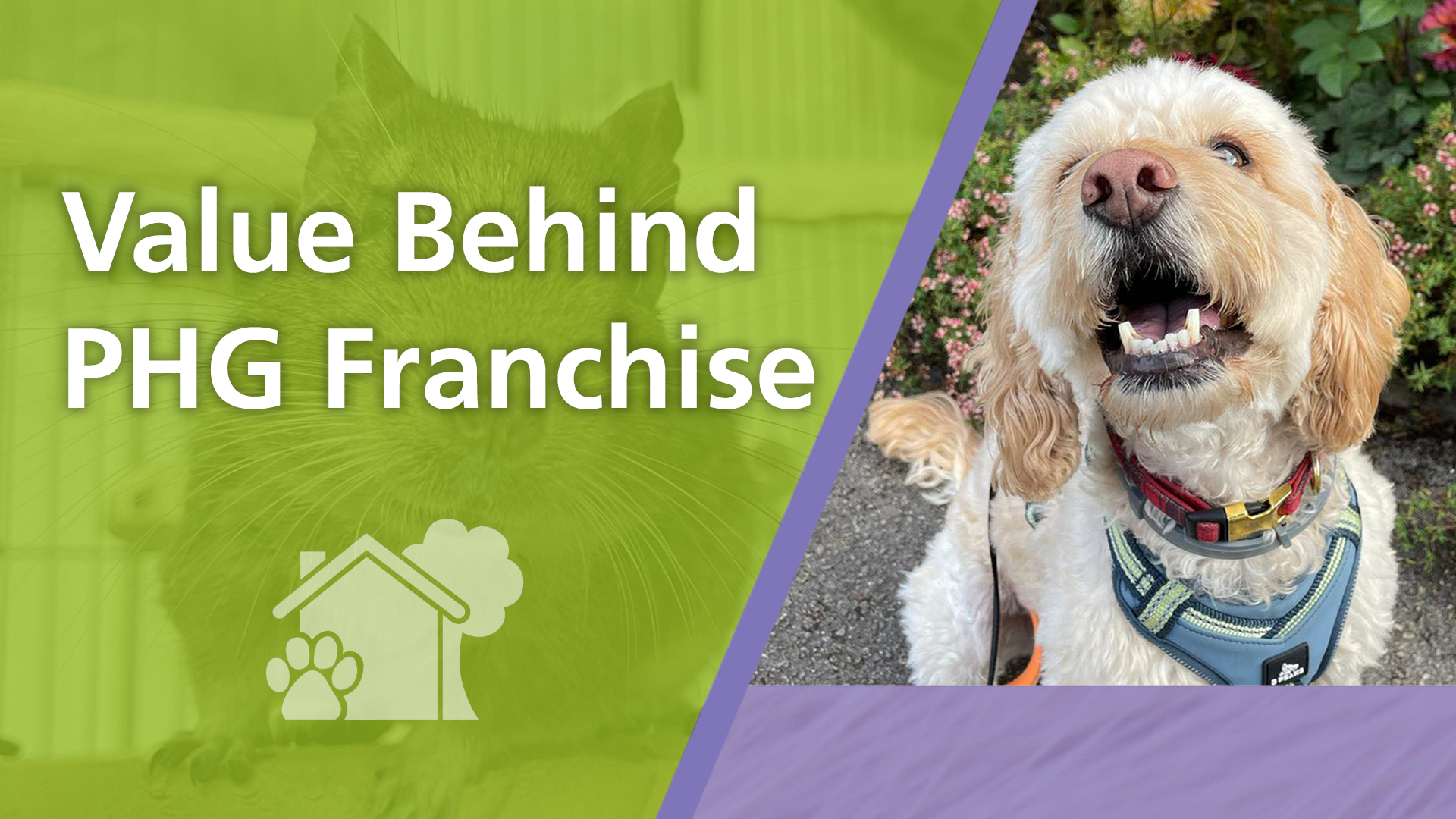
Is Dog Walking Seasonal? What Happens in Winter and Summer?
Hey, Ritchie here.
If you're considering starting a professional dog walking business, you've probably wondered: "What happens when the weather turns bad? Will I still have customers in winter? Is my income going to disappear in August when everyone's on holiday?"
These are completely legitimate concerns. After all, the last thing you want is to build a business that only works six months of the year.
Here's the good news: dog walking is not seasonal at all... when done right.
In fact, it's one of the most remarkable things about this business. How many businesses can you think of that provide a steady, predictable income stream during regular working hours (Monday to Friday, 9am-5pm), all year round? I honestly can't think of many.
Let me share what I've learned after over seven years of walking dogs professionally. From hot summers, cold winters, and everything in between.
Why Professional Dog Walking Isn't Seasonal
The key is understanding who you're serving.
When you target the right customers - people in full-time employment who need regular, reliable care for their dogs, they will require your services all year round. And that's regardless of the weather or season.
Regular Clients vs. Ad Hoc Bookings
This is where many new dog walkers get it wrong. If you're only taking ad hoc bookings (one-off walks when the owner fancies a lie-in or has a last-minute appointment), your income will be unpredictable and, yes, somewhat seasonal.
But when you build your business around regular, recurring clients, you create the kind of stability most businesses can only dream of.
Think about it: a working professional with a dog doesn't stop working in January because it's cold, or in July because it's sunny. They need you consistently, week in and week out, all year long.
This is the foundation of a sustainable dog walking business.
"But What About People Working From Home?"
I'll be honest, this was one of my biggest fears coming out of lockdown.
I genuinely thought that a huge portion of my customers would no longer need me because they'd be working from home permanently. I imagined my carefully built business crumbling as people realised they could walk their own dogs during lunch breaks.
Thankfully, I was completely wrong.
Not only did I retain 100% of my dog walking clients post-lockdown, I actually took on lots of new customers the moment restrictions lifted.
Here's what I've come to understand: People working from home still need professional dog walkers.
This is because they're still working. The time their dog is out on a walk, they can focus, join video calls without interruptions, meet deadlines, or simply have a proper lunch break in peace.
And just because you're at home doesn't mean you want to walk in pouring rain at 11am when you've got a report due by 2pm.
Your role as a professional dog walker actually becomes more valuable to work-from-home clients. You're not just exercising their dog, you're giving them uninterrupted work time and peace of mind.
What About Winter? Isn't It Miserable Walking Dogs in the Cold and Rain?
Let me address the elephant in the room: yes, British winters can be wet, cold and windy.
But here's the thing.... the majority of dogs absolutely love it.
In my seven years as a professional dog walker (which means seven winters, by the way), I've noticed that dogs are often at their happiest when the weather, in our eyes, is at its worst.
Rain? They're splashing through puddles like toddlers. Wind? They're running around like they've had ten espressos. Cold? They've got fur coats and we soon warm up when we get moving. Plus there are many dog coats available on the market which are ideal for smaller dogs or breeds with shorter coats.
When you see sheer joy from the dogs you're walking, trudging through the elements becomes surprisingly enjoyable. There's something quite grounding about being outside in all weathers, watching the dogs absolutely thrive.
The Equipment Makes All the Difference
With the right gear? Winter walking really isn't a problem at all.
At PHG, we provide our franchisees with a comprehensive equipment database, recommending the best weatherproof kit that's been tried and tested . It's the kind of practical guidance that makes winter walking far more manageable from day one.
And here's a bonus: when spring and summer arrive, you appreciate them so much more. After battling the elements, those first warm, sunny walks feel absolutely glorious.
I've genuinely come to love all four seasons for different reasons. Autumn leaves, crisp winter mornings, spring bluebells, summer meadows - each has its own magic.
Your Customers Will Value You Even More in Winter
Here's something else worth considering: your customers hold you in even higher regard during the winter months.
Because you're the one walking their dog in the freezing cold, wind, and rain. You're the one with muddy dog paws and wet fur to deal with.
That takes a huge job off their shoulders, and they know it.
The trust and appreciation you build during those challenging months strengthens your client relationships significantly. It's not just about the service; it's about the reliability and commitment you demonstrate.
What About Summer Holidays?
The other concern people have is summer - specifically, what happens when everyone goes on holiday?
First, let's be realistic: yes, some of your regular clients will take holidays. But not everyone goes away at the same time, and it's very rare for anybody to travel for a period of more than 10-14 days at a time.
Many working professionals only take one or two weeks in the summer. Plenty of people don't have children and will therefore typically holiday outside the peak season. And increasingly, people take multiple shorter breaks throughout the year rather than one long summer holiday.
And, here's where diversification comes in...
Diversify Your Services to Smooth Out Any Seasonal Dips
Why would you limit your services to just dog walking?
When you offer additional pet care services like home visits for cats, small pet boarding, or house sitting - you create multiple income streams that balance each other out beautifully.
Think about it:
- When a client goes on holiday overseas, you could be house sitting for them, looking after the house and their dog (earning significantly more per day)
- Cat owners will require once or twice daily home visits when away on holiday or a business trip
- Small pet boarding (rabbits, guinea pigs, etc.) can also add to your income very nicely
- Christmas and summer holidays are actually peak times for house sitting and home pet visits
These services complement each other perfectly as you can carry out the visits and your other pet care services around your regular dog walks.
This is exactly how I've structured my business, and it's one of the reasons my income has remained strong throughout the year.
So, How Many Dogs Do You Need to Earn a Full-Time Income?
Let's do the maths, because this is where it gets exciting.
Assume you're offering a dog walking service Monday to Friday, 9am-5pm, every week.
Factoring in:
- Breaks
- Driving time between walks
- Some customer holidays throughout the year
Let's say you average six solo dog walks per day.
If you're charging £16.50 per walk (which is actually conservative for PHG franchisees), that works out to:
- £100 revenue per day
- £2,000 revenue per month
- £24,000 revenue per year
And that's just from dog walking, with quite modest pricing.
Now add in:
- Home visits for cats (£14-£18 per visit)
- House sitting assignments (£50-£75+ per day)
- Small pet boarding (£15+ per day)
Suddenly, you're looking at a very respectable full-time income of £50,000+ revenue annually, depending on how you structure your services, pricing and client base.
I've written a full article on earnings potential titled Is a Dog Walking Business Profitable in the UK? It's definitely worth a read if you want to dive deeper into the numbers.
The Reality: This Works... But Only If You Build It Right!
A professional dog walking business can absolutely provide year-round, stable income.
But there's a lot to get right:
- Finding and attracting your ideal clients (not just any dog owners)
- Creating a unique selling proposition that sets you apart
- Setting up professional branding and a website that builds trust
- Determining your pricing structure
- Managing invoicing, insurance, contracts, and bookings efficiently
- Positioning yourself as a premium service, not a cheap alternative
- Building systems so you're not constantly scrambling
If you're reading this and thinking, "That sounds a bit overwhelming," you're not alone.
This is exactly why so many people choose a proven framework rather than figuring everything out from scratch.
Why PHG Franchisees Have the Advantage
Since 2012, we've been helping people just like you build sustainable, profitable pet care businesses.
Here's what our franchisees get that independent operators have to figure out alone:
✅ A proven business blueprint that's been refined over 13 years
✅ Website, branding, and marketing materials ready to go from day one
✅ Premium pricing guidance so you're not undervaluing your service
✅ Comprehensive equipment recommendations (including all that winter gear)
✅ Ongoing support from us (Ritchie & Amber) and fellow franchisees who are among the best in the industry
✅ Training on invoicing, contracts, insurance, client management
✅ Training on the 'PHG Standard': Our proven blueprint for five-star service delivery
✅ Exclusive territory, so you're not competing with other PHG franchisees in your area
And perhaps most importantly: you're never alone. You've got the backing and support of the entire PHG family!
When winter hits and you need to know the best waterproof trousers, or when a client asks a tricky question, or when you're wondering how to structure your summer holiday cover - you've got people you can ask.
The Bottom Line: Dog Walking Is Year-Round - When Done Right
So, is dog walking seasonal?
No, not when you target the right clients, offer the right services, and build a professional operation.
The demand for reliable, trustworthy pet care exists 12 months a year. Dogs don't take the winter off. Working professionals don't suddenly stop needing help with their pets.
And with the right equipment, mindset, and support system, you can build a business that provides stable income, incredible flexibility, and the genuine joy of working with animals every single day - rain or shine.
Best,
Ritchie
Related Articles You Might Find Helpful:
Get Your Free Info Pack









